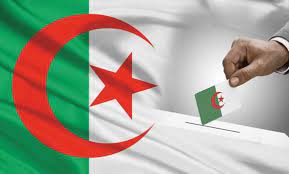A new controversy has arisen in the Algerian electoral process, with the exclusion of several candidates over alleged irregularities.
Even before it takes place the election has been dismissed as a farce by the Algerian opposition whose candidates were excluded from the presidential race.
Algeria will hold presidential elections on September 7th.
Following the official announcement of the candidacy of incumbent president, Abdelmajid Tebboune, on July 18, the exclusion of several candidates for alleged irregularities is now the subject of a debate.
As reported by Al Arab, three opposition candidates appeared before an examining magistrate at the Algiers Judicial Council.
They are accused of violating the country’s electoral laws, including corruption and buying signatures.
These charges could result in prison sentences.
The excluded candidates include Belkacem Saheli of the Republican Alliance; Saida Nezha, businesswoman and head of the Algerian Employers’ Association; and Abdul Hakim Ammar.
Their appeals to the Constitutional Court to reverse their disqualification were rejected.
In total, thirteen politicians looking to challenge Tebboune for the Algerian presidency were excluded for various reasons, including Zoubida Assoul, lawyer and defender of political prisoners.
These exclusions prompted a response from over a dozen opposition representatives, who denounced the “authoritarian climate” under Tebboune and described the elections as a farce.
Following the disqualifications the electoral field has been whittled down to three candidates: Abdelmajid Tebboune, an independent candidate; Abdelaali Hasani Sharif of the Society for Peace Movement (Hams); and Youssef Aouchiche of the Socialist Forces Front (FFS).
Political analysts believe that Tebboune’s opponents represent no more than a symbolic opposition.
According to Attorney General Lofti Boudjemaa, the investigation conducted by the Algerian Judicial Council revealed that some candidates had purchased signatures from civil servants in order to meet administrative requirements. The sums paid ranged from 20,000 to 30,000 dinars ($150 to $200).
Abdelaali Hassani, who was permitted to run, denied the involvement of his elected representatives in these practices.
Lamine Osmani, leader of the Voice of the People party, which backs Tebboune, also denied any involvement.
Prosecutor General Boudjemaa has confirmed that the investigation is ongoing and that all those involved will be identified and prosecuted. Algerian electoral law criminalises vote-rigging and the offer of gifts, benefits, services, and promises.
MN/te/sf/lb/as/APA


